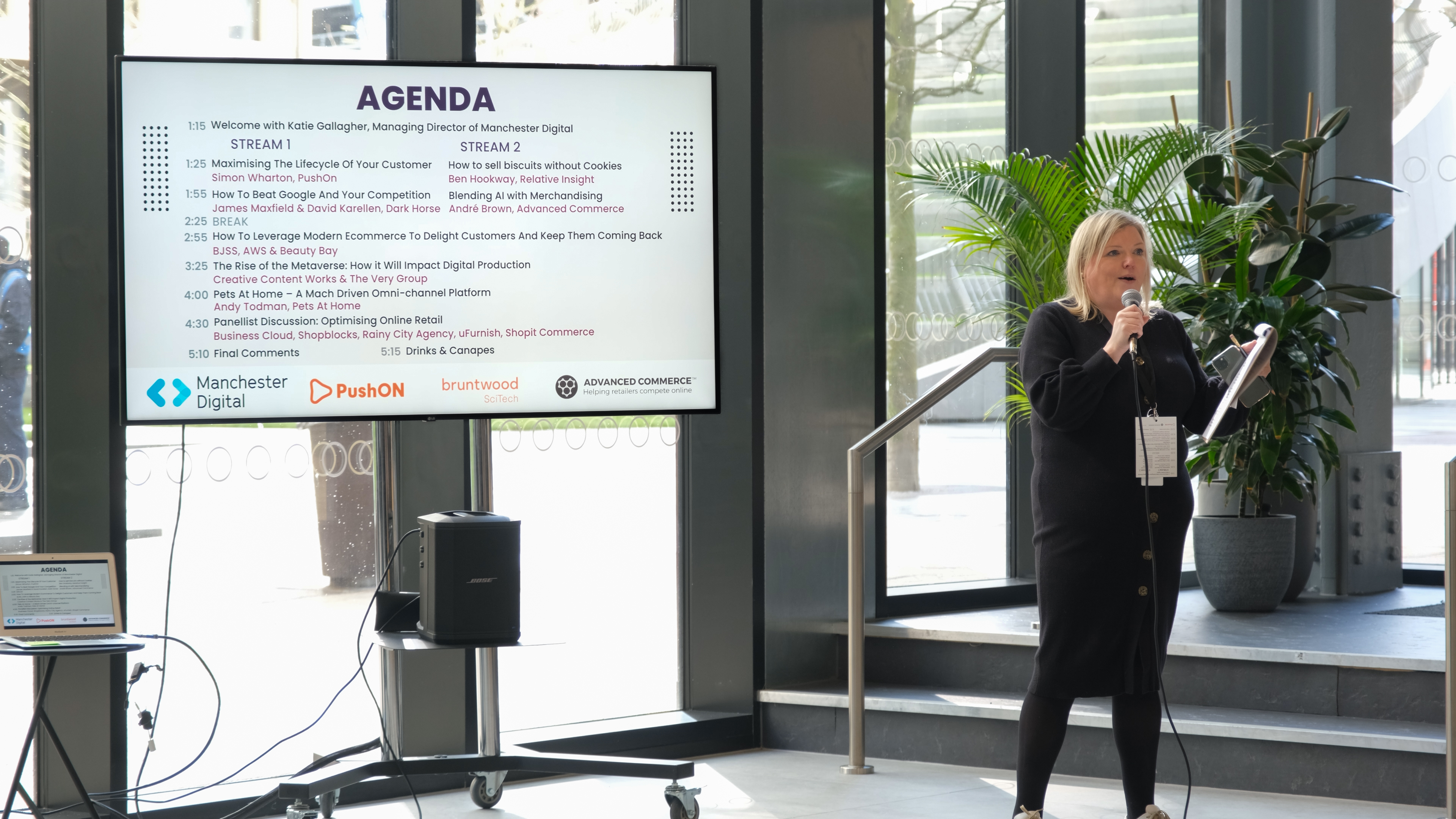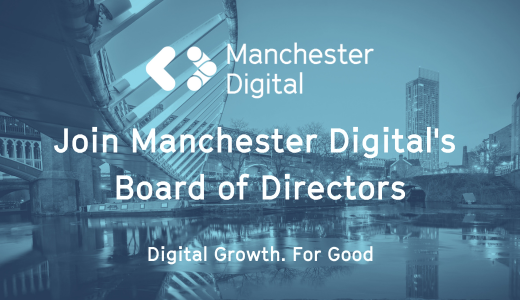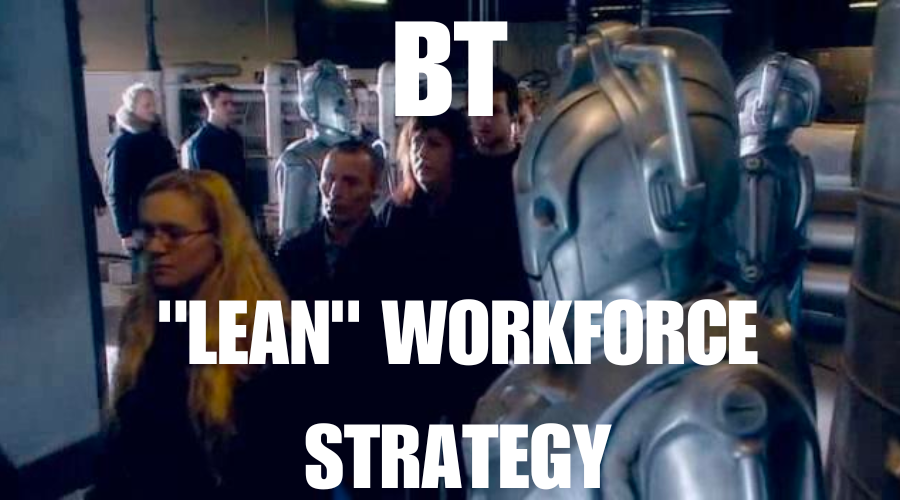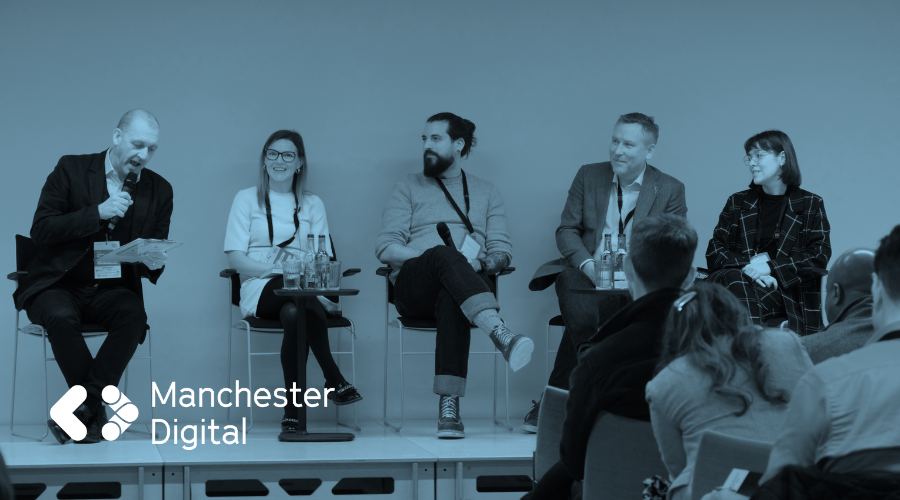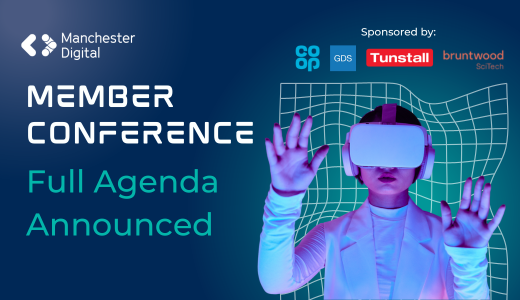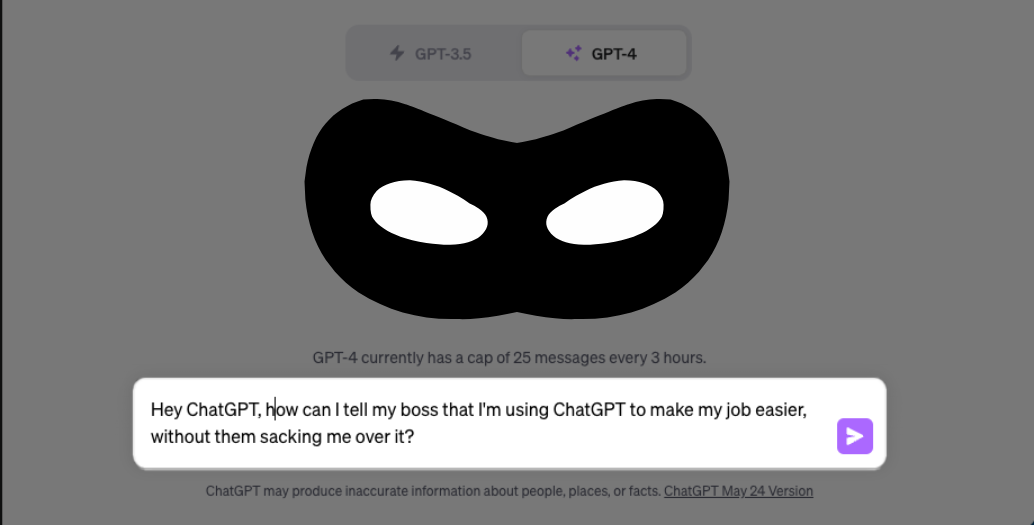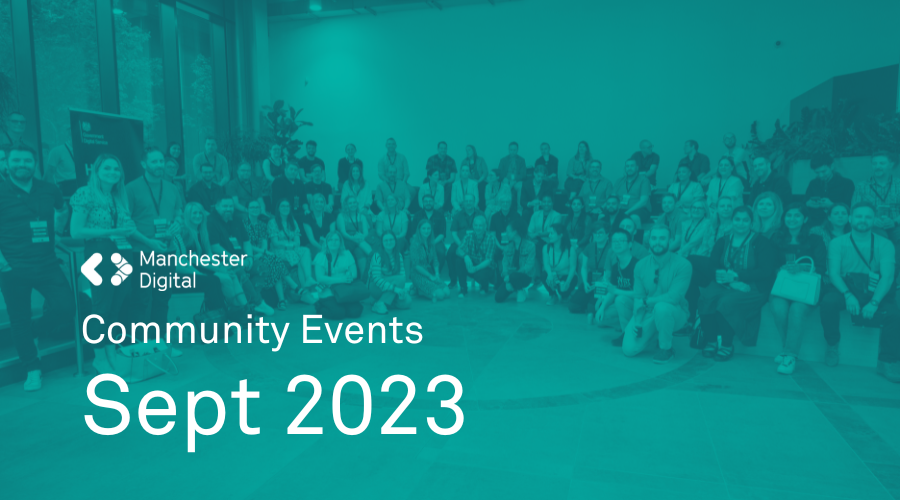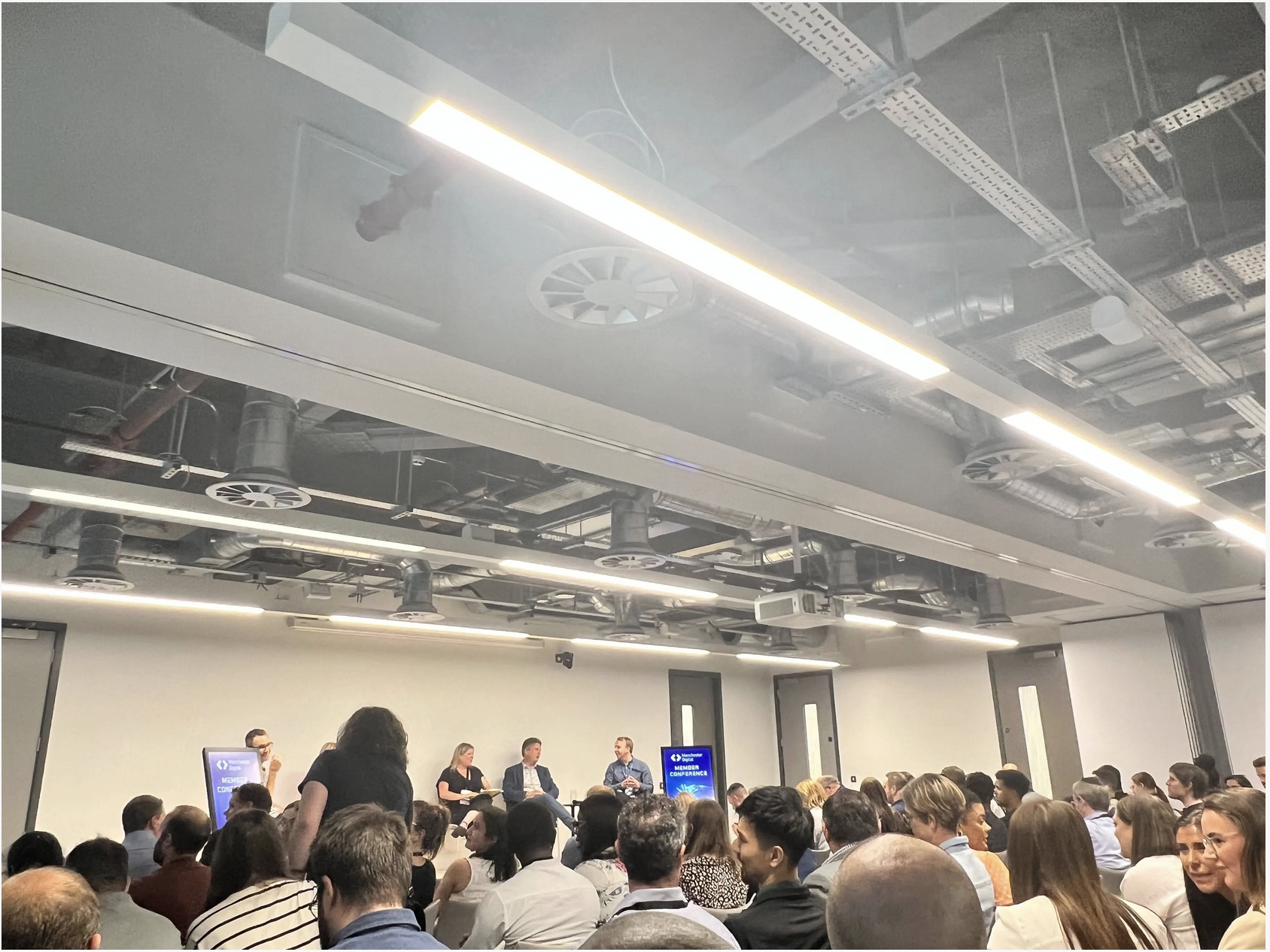
The first session I attended was titled “What if?” and was put together by Richard Fallon, CTO and Founder of Naimuri, a software development and data intelligence company based in Salford.
Such an open-ended name made for plenty of anticipation around Richard’s discussion points, and the audience listened with interest as he laid out a utopian vision of Manchester existing as the United Kingdom’s definitive, absolute technological and digital hub.
He pondered the main ingredients that would constitute such a city. What do the likes of San Francisco, Tel Aviv and Berlin all have in common? Talent, in the main, and a steady stream of it flowing into great businesses - but the quality of life has to be there, too. A place where people want to live and work. Space to build. A thriving market.
Richard stressed the need for a coherent ecosystem of talent generators (Universities, Apprenticeships, Colleges), digital companies and internal training initiatives all working towards this same shared vision.
“When you went on holiday in the 90s,” he said. “If you were to mention you were from Manchester it was nailed on that you would be asked if you were in a band.
“The main KPI for me is getting this back. If you mention you’re from Manchester in the future - you should be asked if you work with technology.”
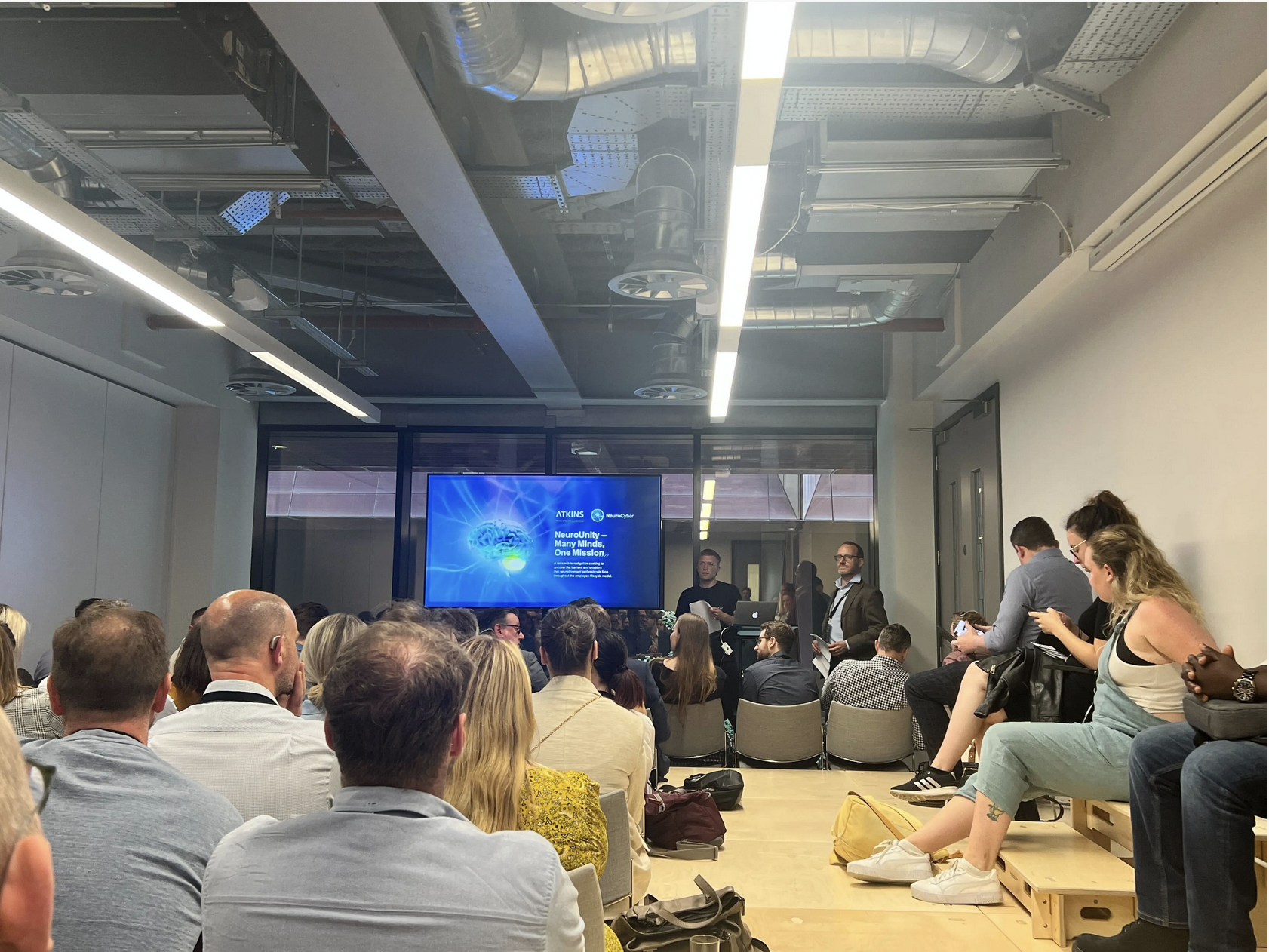
I stuck around in the same room for the next session. Following Richard was Mike Spain, CEO & Founder of NeuroCyber.
Mike founded NeuroCyber in 2018 after his son was diagnosed as Autistic. The diagnosis inspired Mike to research the potential employment opportunities he may expect in later life, and the findings were “horrific.”
The Office for National Statistics published data that shows just 22% of autistic adults are in any kind of employment. Clearly, there is an autism employment gap.
NeuroCyber, therefore, set out to grow neurodiverse representation in the cyber sector (Mike has worked at Atkins for nearly two decades) by raising awareness, making connections and improving inclusive environments.
In April they launched their NeuroUnity research findings - a study that set out to:
“record and understand the real-life experiences of neurodivergent professionals at all stages of the employment lifecycle [focusing] initially on experiences across recruitment, onboarding, daily life, development, and separation.”
From these findings a series of opportunities and recommendations were produced, painting a picture of how cyber businesses (and the wider business world, to some extent) can better recruit, manage and nurture neurodivergent talent.
This was a really thought-provoking session and the full summary report can be downloaded here.
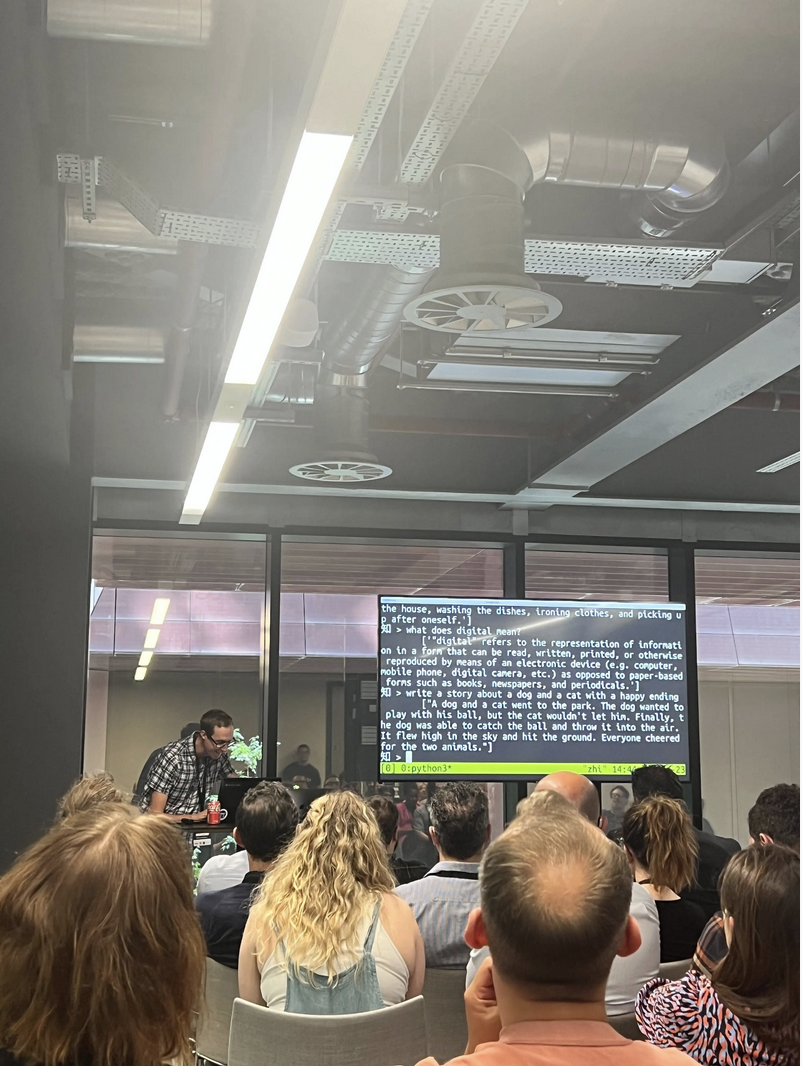
Following this, I moved over to the other stream of sessions to catch Matt Squire, CTO and Co-Founder of Fuzzy Labs.
Matt’s session discussed large language models (LLMs) from an open-source perspective, complete with a live demonstration of a system in action.
Now, admittedly, I was listening in from the perspective of a humble marketer, so there may be elements that went slightly over my head, but one of the key quotes that I noted down was: “We’ve all heard of the rubber duck debugging method - what if the rubber duck talked back?”
LLMs are a type of artificial intelligence (AI) that train on massive datasets of text and code. They can be used for a variety of tasks, including generating content, translating languages, and debugging - more on the benefits and drawbacks of this, later. ChatGPT is, of course, the most popular and understood example of a product based on an LLM.
There are two main types of LLMs: open-source and proprietary. Proprietary LLMs come with a license that grants limited rights to use the software under certain terms and conditions. For example, if you wanted to build a new product using Open-AI’s API, it will cost you, and you will never truly own 100% of the work that you have done. Along with the likes of Google’s Bard, these are closed LLMs offering limited control and no transparency over their actual architecture.
Open-source LLMs are freely available and can be used by anyone. One of the examples given was RedPajama. Free to use, offering a wide range of features and functionality, they
“present a compelling alternative to closed models, offering users transparency, flexibility, and control.” - Fuzzy Labs - Exploring the Landscape of Open-Source Language Models
The main takeaway from Matt’s session was that the future must lie with open-source LLMs, rather than building on closed systems, as they offer greater transparency, flexibility and control.

After a short networking break, the conference reconvened for the day’s panellist discussion. Continuing nicely on from the previous theme, the discussion centred around the integration between AI and the human workforce - “You can’t spend 10 mins working in tech without hearing ‘AI’”, of course.
The panel consisted of:
- Katie Gallagher, Managing Director - Manchester Digital
- Simon Thompson, Head of Data Science - GFT
- Juliette Dennett, Consultant - Dale Carnegie North
- Mike Skelton, Deputy Director, Publishing and Infrastructure - GDS
- Alex Meehan - Data Science Product Lead, Co-Op
It explored the tension between the hype that surrounds AI’s potential application in business… and the actual bare-boned reality of the technology.
It was stressed that generative AI, in the purest sense, simply regurgitates data. It pattern matches. In the words of Simon, ChatGPT is “a very sophisticated parrot.” They don't infer or reason. This has to be kept in mind when using such systems.
The serious and very real security threats of using generative AI in its current format were also at the forefront of the afternoon’s conversation. Samsung, for example, banned ChatGPT following a sensitive code leak. By default, ChatGPT saves a user’s chat history and uses those conversations to train its models, meaning that sensitive data could be shared with other users.
Again, it does not reason, it simply regurgitates the model it is built on.
So, how best can we integrate such technology into businesses in a practical and coherent way, whilst acknowledging its limitations and drawbacks?
Juliette suggested that artificial intelligence can reduce operational burden in areas where we know humans don’t typically do a good job. Dealing with very large and complex data sets, for example.
Organisations that are considering introducing artificial intelligence into their workplace were given four key areas to consider:
- Human rights, covering privacy, dignity and such.
- Robustness, covering the security and safety of the technology at a human level.
- Transparency, covering the ability to explain the technology to colleagues so that they are aware of its role within the business, and how it impacts/communicates with them.
- Accountability, covering who is accountable for the management of the technology, including if something goes wrong.
We are on the edge of the next technological revolution, the last one being driven by social media. At the time, no one was thinking about the negative impact that could come from Facebook, Twitter and the like. Now, these platforms are losing the battle against misinformation and the debate rages on about social media’s overall impact on society as a whole.
We can’t afford to make the same mistakes again, and AI must be excruciatingly examined before mass adoption so that it is integrated into businesses, and wider society in the most meaningful and positive way.
Final thoughts
Thank you as always to Manchester Digital for putting on such a great event. Venditan is a proud member of Manchester Digital, an association of people and organisations working with digital media, technology and eCommerce solutions based in and around Manchester, UK.
